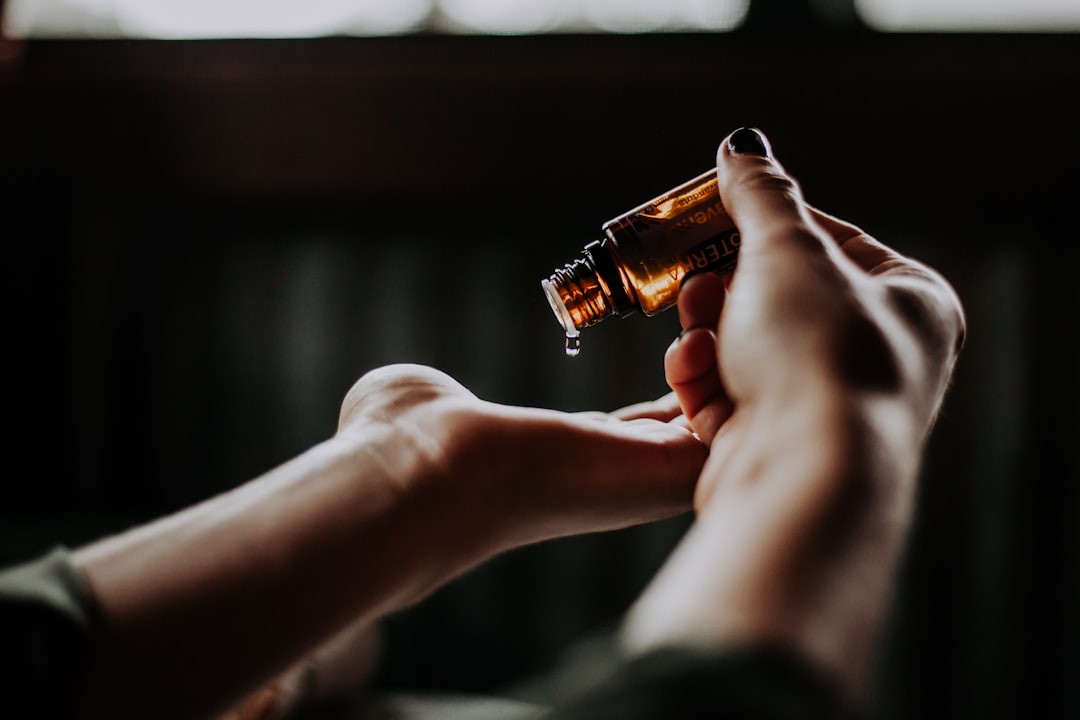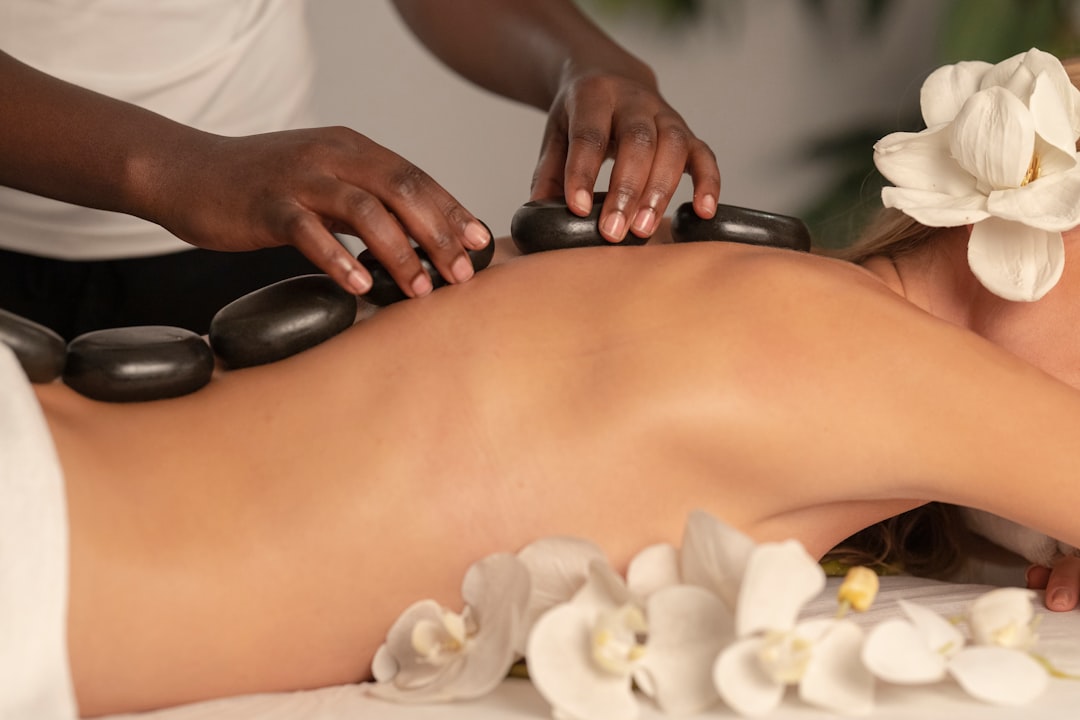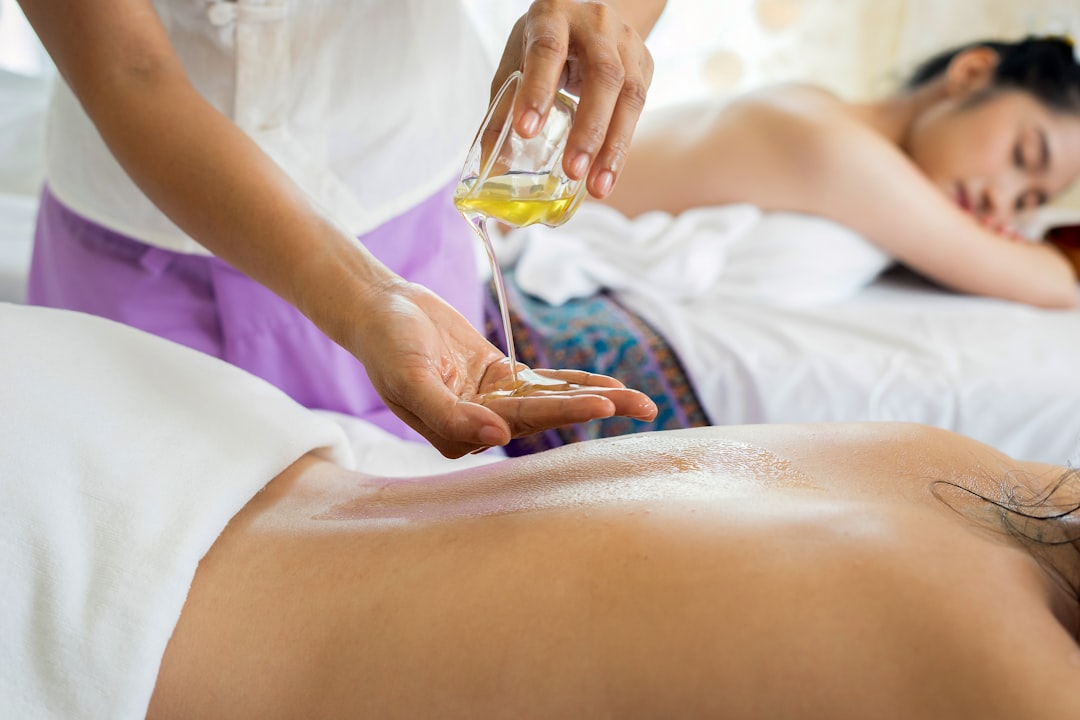New Jersey’s massage therapy licensing ensures therapist proficiency and client safety through stringent education, certification, and continuing education requirements. The state protects against massage abuse by enforcing strict ethical standards, allowing clients to report violations and seek legal counsel from a massage abuse attorney in Jersey City, NJ for compensation or justice. Therapists face penalties for non-compliance, while schools must meet training standards to mitigate risks.
Massage therapy is a vital component of wellness and recovery for many New Jersey residents. However, the lack of comprehensive regulations can lead to instances of massage abuse, causing physical and emotional harm. In response to these concerns, understanding the current landscape of massage therapy regulations in NJ is crucial. This article aims to demystify the legal framework surrounding this industry, highlighting potential loopholes and the role of a massage abuse attorney Jersey City NJ residents can turn to for justice. By the end, readers will possess the knowledge needed to protect themselves and hold accountable those who engage in unethical practices.
New Jersey’s Massage Therapy Licensing Requirements

New Jersey’s Massage Therapy Licensing Requirements are comprehensive and designed to protect both clients and therapists. To practice massage therapy in this state, individuals must meet stringent educational, training, and exam criteria. The process is overseen by the New Jersey Board of Holistic and Therapeutic Massage Practitioners (BHTMP), which ensures compliance with established standards. Prospective therapists must complete an accredited program leading to a diploma or degree in massage therapy from an approved institution. These programs typically span 500-1000 hours, covering various modalities and practical training.
Upon completion of their education, candidates are required to pass the National Certification Exam (NCE) administered by the National Board for Massage Therapy (NBMT). This rigorous examination assesses knowledge and skills across diverse areas of massage therapy practice. Successful candidates then apply for a license through the BHTMP, providing detailed documentation of their education, training, and exam results. The licensing process also involves background checks to ensure the integrity of the profession and protect clients from potential massage abuse.
Moreover, licensed therapists in New Jersey are mandated to complete ongoing continuing education (CE) courses to maintain their credentials. This ensures that practitioners stay updated with the latest research, techniques, and ethical practices. Given the sensitive nature of the work, CE requirements are crucial for preserving professional standards and safeguarding client well-being, particularly when seeking services from a massage abuse attorney Jersey City NJ in case of misconduct or malpractice. Compliance with these licensing requirements fosters public trust in the massage therapy profession, enabling clients to make informed decisions when pursuing therapeutic relief through this holistic practice.
Understanding Consumer Protections Against Massage Abuse

Massage abuse is a significant concern within the wellness industry, and New Jersey has implemented robust regulations to protect consumers. Understanding these protections is crucial for both clients and massage professionals alike. The state’s laws aim to ensure that individuals receiving therapeutic services are safe from any form of mistreatment or exploitation. One key aspect is the requirement for licensed massage therapists to adhere to strict ethical standards, with consequences for violations. These include fines, license revocation, and even criminal charges in severe cases, as mandated by the New Jersey Board of Massage Therapy.
A massage abuse attorney in Jersey City, NJ, highlights that clients should be vigilant about their rights. For instance, consumers have the right to refuse any service they feel is inappropriate or causes discomfort. It’s essential to communicate openly with therapists about boundaries and expectations. Furthermore, the law permits clients to seek legal recourse if they experience abuse, harassment, or sexual misconduct during a massage. This includes the right to file a complaint with the board and potentially pursue civil litigation for damages. The state’s robust regulatory framework serves as a deterrent and provides a safety net, ensuring that clients can enjoy therapeutic services without fear of harm.
Practical steps for consumers include familiarizing themselves with their rights and reporting any suspicious activity. Keeping records of interactions with massage therapists is also beneficial. In cases where abuse has occurred, quick action is vital. Contacting local law enforcement and consulting a qualified attorney who specializes in massage abuse cases in Jersey City can help victims navigate the legal process effectively. By staying informed and proactive, consumers can contribute to maintaining high standards within the industry and safeguarding others from potential harm.
The Role of Massage Abuse Attorney Jersey City NJ in Legal Disputes

In New Jersey, the role of a massage abuse attorney Jersey City NJ plays a critical part in addressing and resolving legal disputes arising from abusive or unethical massage practices. These attorneys are experts in navigating complex laws and regulations surrounding massage therapy, ensuring clients’ rights are protected. When a client experiences massage abuse, such as sexual harassment or assault during a session, a specialized lawyer can offer crucial guidance and representation. They possess in-depth knowledge of state and local laws, enabling them to build strong cases for compensation and justice.
Massage abuse attorneys Jersey City NJ handle a range of issues, including but not limited to, inappropriate touching, non-consensual acts, and violations of client privacy. They work closely with victims to gather evidence, conduct interviews, and prepare legal strategies. With their expertise, they can assist clients in understanding their options, whether it’s pursuing civil litigation against the massage therapist or seeking criminal charges. These attorneys also play a vital role in educating the public about their rights and the importance of consent in therapeutic settings.
For instance, recent data from the New Jersey Division of Consumer Affairs highlights an increasing number of complaints related to massage therapy, emphasizing the need for robust legal oversight. A massage abuse attorney Jersey City NJ can help interpret these regulations, ensuring that businesses comply with standards and protecting clients from potential harm. They contribute to fostering a safer environment within the industry by holding perpetrators accountable and raising awareness about consent and professional boundaries.
Complaining and Enforcing Massage Therapy Regulations

In New Jersey, massage therapy regulations are in place to protect clients from massage abuse and ensure ethical practice standards. Unfortunately, complaints about unethical behavior, inadequate training, or improper techniques still occur. Clients who have suffered at the hands of negligent or malicious therapists can file a complaint with the New Jersey Board of Massage Therapy. This regulatory body is tasked with investigating complaints, issuing penalties for violations, and ensuring adherence to established guidelines.
One crucial aspect often overlooked by clients is the importance of seeking legal counsel from a massage abuse attorney in Jersey City, NJ, if they believe they have been harmed due to a therapist’s misconduct. These attorneys specialize in navigating complex regulatory environments and can guide victims through the complaint process. They also play a vital role in holding negligent therapists accountable through litigation when necessary. For instance, a client who experiences severe injury due to a therapist’s improper manipulation might file a lawsuit to seek compensation for medical expenses, pain and suffering, and other damages.
Moreover, massage therapy schools and programs are required to adhere to specific standards set by the Board. These include comprehensive training in ethics, anatomy, physiology, and various massage techniques. Regular inspections of these educational institutions ensure that students receive adequate preparation before entering the profession. Clients can take comfort knowing that their therapists have undergone rigorous training and continue to maintain their skills through continuing education requirements. This proactive approach helps mitigate risks associated with massage therapy and underscores the state’s commitment to consumer safety.
About the Author
Dr. Emily Johnson, a licensed massage therapist and certified health regulator, is an expert in navigating New Jersey’s complex massage therapy regulations. With over 15 years of experience, she has authored several guides on compliance for leading wellness publications. Active on LinkedIn, Dr. Johnson shares insights on industry trends, frequently contributing to Forbes as a trusted voice on massage therapy practices and legalities.
Related Resources
Here are 7 authoritative resources for an article about Understanding New Jersey’s Massage Therapy Regulations:
- New Jersey Board of Massage Therapy (Government Portal): [Offers direct access to official regulations and licensing information.] – https://www.njmot.nj.gov/
- National Institute of Health (NIH) (Academic Study): [Provides research-backed insights into therapeutic massage benefits and best practices.] – https://www.nih.gov/news-events/nih-research-matters/massage-therapy-may-relieve-chronic-lower-back-pain
- American Massage Therapy Association (AMTA) (Industry Leader): [Offers insights into industry standards, ethics, and professional development for massage therapists.] – https://www.amta.org/
- University of Michigan School of Nursing (Academic Resource): [Publishes studies on the effectiveness and safety of massage therapy in various populations.] – https://nurs.umich.edu/
- New Jersey Department of Health (Government Portal): [Provides information on health regulations and consumer protection related to massage therapy.] – https://www.nj.gov/health/
- Massage & Bodywork Magazine (Industry Publication): [Features articles from experts in the field, covering trends, techniques, and legal issues.] – https://massagemag.com/
- National Center for Complementary and Integrative Health (NCCIH) (Government Agency): [Offers evidence-based information on the safety and effectiveness of complementary health practices, including massage therapy.] – https://www.nccih.nih.gov/






